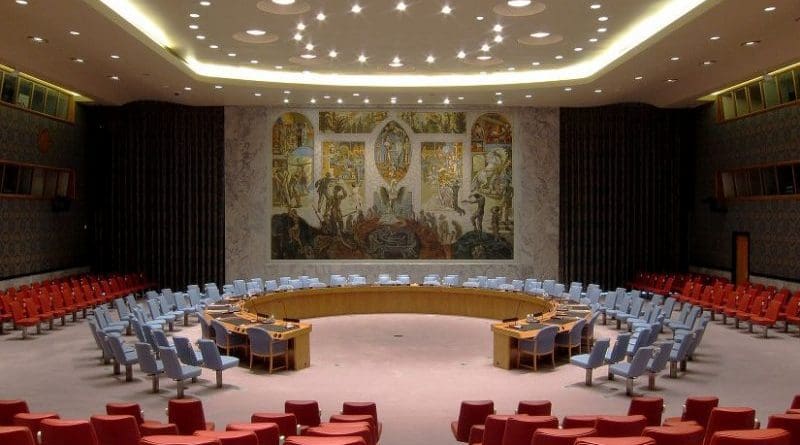Why Reforming The UN Security Council Is Imperative – OpEd
The UN Security Council neither represents the power realities of the contemporary era nor does it factor the security considerations of developing countries into its structure. While Europe is overrepresented by the presence of Britain, France and Russia, other geographical regions comprising mostly developing countries of Asia, Africa and Latin America are underrepresented. So far as the existing structure of the Security Council is concerned, it is China, as a permanent member, is supposed to have represented and continue to represent the interests and security concerns of all developing countries.
However, history speaks somewhat a different story. China has never been inclined to formally identify itself with the largest multilateral bodies of the developing world such as the Non-Aligned Movement and G-77. China’s contentment with observer status within NAM and major statements of G-77 being issued as position papers on behalf of ‘G-77 and China’ point to this fact.
Furthermore, China makes far less troop contribution to the UN peacekeeping operations which are mostly undertaken in developing countries, in contrast to lesser developing countries such as India, Bangladesh and Pakistan.
It is quite palpable that what Deng Xiaoping said to his party cadres way back in the year 1990 still resonates in the Chinese foreign policy circles and points to China’s individualistic aspirations. He said: “Some developing countries would like China to become the leader of the Third World. But we absolutely cannot do that – this is one of our basic state policies. We cannot afford to do it and besides we are not strong enough. There is nothing to be gained by playing that role. We would only lose most of our initiatives”. These remarks sit quite uncomfortably with the most populous country of the world representing the largest landmass of the developing world as a permanent member.
The UN Security Council still reflects the post-Second World War power realities. In fact, the idea germinated among the Allied powers to manage and regulate international politics when the Second World War was on. It is pertinent to note that the then US President F. Roosevelt unfolded such plan in an after dinner conversation at White House in May 1942 to the then Foreign Minister of the USSR, Moltov. The US President believed that the US, the USSR, Britain and China could possibly police the world in the aftermath of the Second World War. His thinking underlying such belief was their power position and population over a billion could go a long way in defending small and incapable nations.
However, more than their intentions of protecting incapable countries from aggression, crude realities guided the formation of the UN Security Council. Following the Second World War, the US wanted China to be a permanent member to contain Japanese power ambitions in Asia. Britain wanted another colonial power France in the UN Security Council to meet challenges stemming from anti-colonial forces demanding independence.
The fact that needs to be underlined is that the geographical representation of third world countries assumes significance not merely for the sake of accommodating aspirations of different regions rather it is vital in view of changing power realities and notions of security. The Permanent Member of the UN Security Council and the developing world should have shared security perspective. The UN, in the current century, has to deal primarily with the security problems of the third world as intra-state conflicts and civil wars have grown manifold compared to inter-state wars which were part and parcel of recurring imperial struggle between western powers. With the passage of time while Europe has integrated under the banner of European Union, the Cold War between the US and the erstwhile Soviet Union has subsided. But the countries of Asia and Africa which once served as colonies of imperial western powers still suffer from numerous socio-economic malaise and political instability.
The UN operation in Somalia pointed to the western troops’ incapability and impatience in understanding socio-economic and political problems confronting the people there which eventually led to the withdrawal of the American and western troops and turned the operation into largely a third world-led effort. Similarly, while there was hardly any effort to contain genocide in Rwanda, Afghanistan was allowed to continue to boil until the American interests were threatened directly. In Bosnia, differences in perspectives on the use of military power between the UN and NATO became clear with NATO stressing the effective use of military power and UN emphasizing observation of restraint. Reforms at the UN Security Council will go a long way in addressing differences in security perspectives which are primarily allied to the issue of representation of the developing world.

